Chapter: Civil Surveying : Levelling and Applications
Characteristics of Contour
Characteristics of Contour
The principal characteristics of contour lines which help in plotting or reading a contour map are as follows:
1. The variation of vertical distance between any two contour lines is assumed to be uniform. Contours are continuous.
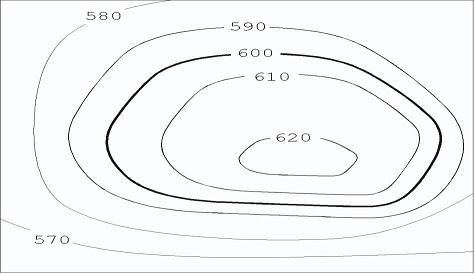
(Fig: Contours are continuous)
The horizontal distance between any two contour lines indicates the amount of slope and varies inversely on the amount of slope. Thus, contours are spaced equally for uniform slope ; closely for steep slope contours; widely for moderate slope
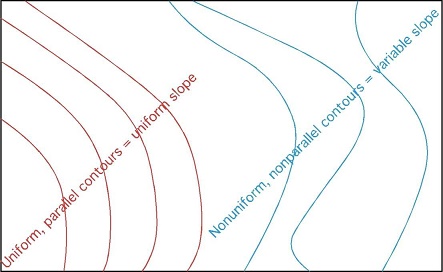
(Fig: Slope )
3. The steepest slope of terrain at any
point on a contour is represented along the normal of the contour at that point
. They are perpendicular to ridge and valley lines where they cross such lines.
4.
Contours
do not pass through permanent structures such as buildings
5. Contours of different elevations
cannot cross each other (caves and overhanging cliffs are the exceptions).
6. Contours of different elevations
cannot unite to form one contour (vertical cliff is an exception).
7. Contour lines cannot begin or end on
the plan.
8. A contour line must close itself but
need not be necessarily within the limits of the map.
A closed contour line on a map represents either
depression or hill . A set of ring contours with higher values inside, depicts
a hill whereas the lower value inside, depicts a depression (without an
outlet).
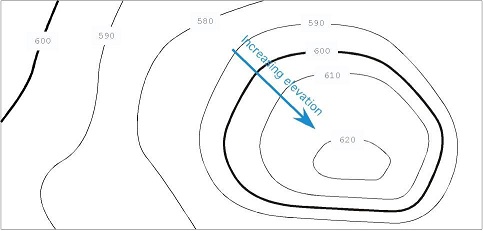
(Fig: Contours showing Hill)
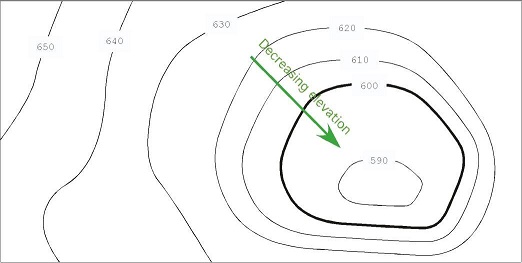
(Fig:
Contours showing Depression)
10.
Contours
deflect uphill at valley lines and downhill at ridge lines. Contour lines in
U-shape cross a ridge and in V-shape cross a valley at right angles. The
concavity in contour lines is towards higher ground in the case of ridge and
towards lower ground in the case of valley
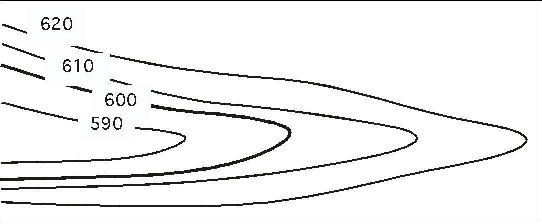
(Fig: Contours showing valley)
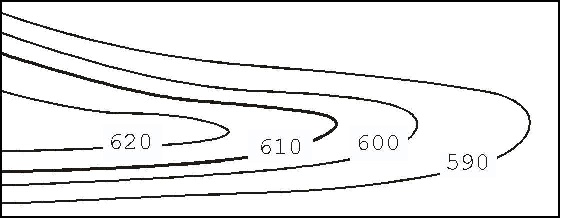
(Fig:
Contours showing Ridge)
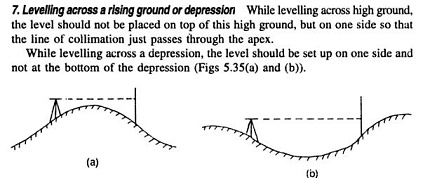
Related Topics